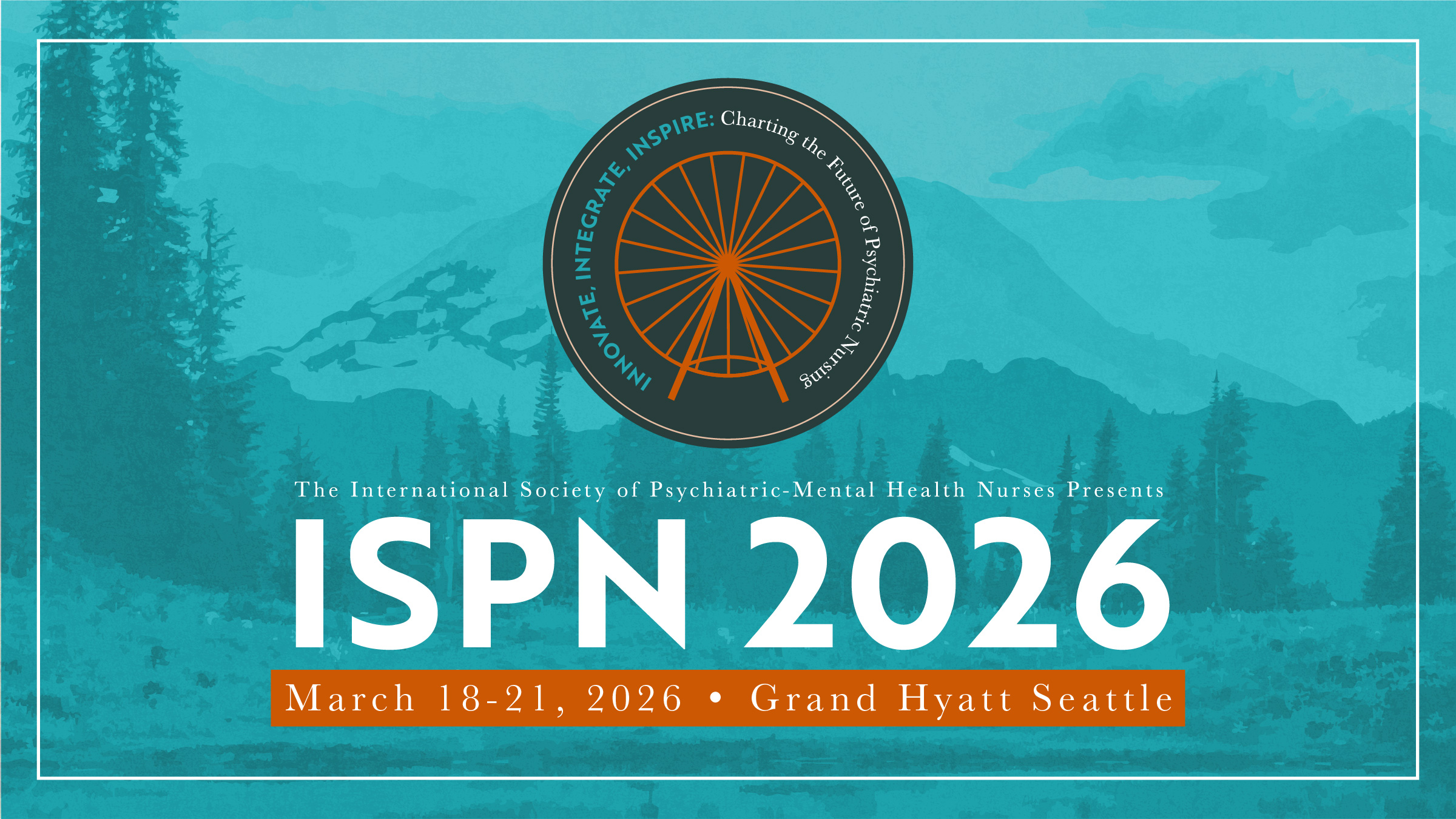Call for Abstracts
2026 Abstract GuidelinesAbstract Submission is CLOSED
Plan to submit your research through the 2026 Call for Abstracts! The International Society of Psychiatric-Mental Health Nurses (ISPN) is proud to present an exciting program guided by the theme “Innovate, Integrate, INSPIRE: Charting the Future of Psychiatric Nursing.” This year’s conference, taking place March 18-21, 2026 at the Grand Hyatt Seattle, will feature leading-edge content focused on innovation, integration, advancements in psychiatric-mental health nursing practice, prevention and treatment of substance use and co-occurring disorders. Abstract Prioritization: Conference Goals:
Annual Conference Objectives: Goal 1 Objectives
1. Identify emerging trends in psychopharmacology applicable to advanced psychiatric-mental health nursing practice.
2. Demonstrate increased understanding of evidence-based prescribing principles through participation in interactive discussions.
3. Evaluate patient safety and monitoring strategies related to psychotropic medication use through case-based dialogue.
Goal 2 Objectives
1. Analyze at least two clinical applications of AI in psychiatric nursing through expert-led presentations.
2. Identify ethical considerations and clinical implications of digital mental health technologies through panel discussions.
3. Draft an implementation plan for integrating technology into practice or educational environments.
Goal 3 Objectives
1. Describe three culturally responsive care strategies for use in diverse psychiatric settings.
2. Examine trauma-informed care models during case presentations focused on underserved and marginalized communities.
3. Complete a structured self-assessment tool to evaluate and reflect on equity and inclusion practices.
Goal 4 Objectives
1. Identify and compare harm reduction strategies for individuals with co-occurring psychiatric and substance use disorders.
2. Critically review recent evidence on relapse prevention and integrative treatment models in psychiatric care.
3. Discuss policy and education initiatives that support access and reduce stigma in substance use treatment.
Goal 5 Objectives
1. Develop a leadership action item informed by presentations and peer exchange.
2. Explore and reflect on new teaching innovations to incorporate into psychiatric nursing education.
3. Analyze workforce trends and articulate key priorities for developing the future of the psychiatric nursing workforce.
Types of Submissions:
Abstracts will be reviewed under the following six categories:
Pharmacology Content:
Pharmacology contact hours are intended to strengthen prescribing knowledge and clinical monitoring skills related to pharmacotherapy. Acceptable topics include pharmacokinetics, drug mechanisms, side effect management, and clinical application. For pharmacology credit to be awarded, content must be supported by the presentation’s learning objectives and session details. Casual or incidental mentions of medications will not qualify.
During abstract submission, you will be asked to estimate the number of minutes within your presentation that will directly address pharmacology content. The options available are: 120, 90, 60, 45, 30, 15, and or 0 minutes.
Presentation Format Oral Presentations (30 or 60 minutes):
180 Minute Pre-Conference Workshop Opportunities (Competitive Selection): Poster Presentation: Read more about the abstract guidelines here. Plan to submit your research prior to Sunday, September 7, 2025. Questions? Send an email to [email protected].
|

